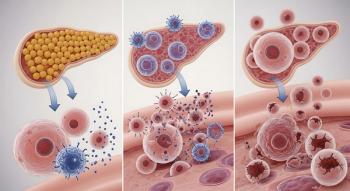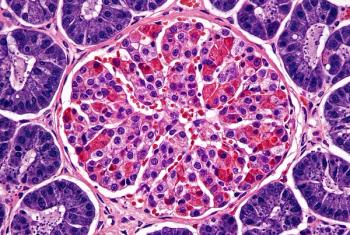
Stelara May be Effective for Type 1 Diabetes in Adolescents
A clinical trial in the United Kingdom has found that Stelara may help to reduce the level of a type of immune cell, which appears to play a role in destroying insulin-producing cells.
Stelara (usekinumab) has been shown in a phase 2 study in the United Kingdom that it can preserve the body’s ability to produce insulin. In a study
“Type-1 diabetes occurs when the body’s immune system attacks and destroys the cells of the body that produce insulin. This eventually leaves the person dependent on insulin injections. Researchers are now developing ways to slow or halt the immune system attack. If such treatments can be started early, before all the insulin-making cells are lost, this could prevent or reduce the need for insulin,” Danijela Tatovic, a clinical research fellow at Cardiff University, Kings College London, Swansea University and the University of Calgary, said in a
Type 1 diabetes is an autoimmune disease that affects about 2 million Americans, about 5% to 10% of all diabetes cases, according to the Centers for Disease Control and Prevention (CDC). In type 1 diabetes, the immune system’s T cells destroy the insulin-producing Beta cells. For patients with type 1 diabetes, the standard of care treatment has been insulin replacement.
The approval of Sanofi’s Tzield (teplizumab-mzwv) in November 2022 has shown that it is possible to address the immune system response in patients with type 1 diabetes. Tzield is a CD3-directed monoclonal antibody that can delay the progression of the disease by stopping the immune system’s destruction of Beta cells.
This has given researchers hope that other therapies might be able to selectively target T cell subsets directly involved in the destruction of Beta cells. Researchers noted a pilot study of ustekinumab showed probably efficacy for newly diagnosed type 1 patients by reducing the Th17.1 cells that lead to the destruction of insulin.
Ustekinumab is marketed as approved as Stelara to treat patients with plaque psoriasis, psoriatic arthritis, ulcerative colitis and Crohn’s disease. It is biologic targets the inflammatory response linked to T1D by inhibiting specific interleukins, IL-12 and IL-23, which are known to stimulate immune responses that damage insulin-producing β-cells in the pancreas. Preservation of these cells is crucial as their loss is a direct cause of T1D and is associated with complications related to poor blood sugar control.
Researchers in the current study wanted to further assess whether ustekinumab role in blocking IL-23 and IL-12 could reduce Th17.1 cells. In this phase 2 study, investigators, led by Tatavic, tested ustekinumab in 72 adolescents between the ages of 12 and 18 with recent-onset type-1 diabetes compared with placebo. Ustekinumab was given within 100 days of diagnosis. In the final analysis, 62 patients were evaluated, including 41 in the ustekinumab arm and 21 in the placebo arm. The study was conducted between December 2018 and September 2022.
After 12 months of using ustekinumab, the researchers found that C-peptide levels — a sign that the body is producing insulin — were 49% higher, which was the primary outcome of the study.
The results also provide the first clinical trial-based evidence for the role Th17 cells in type-1 diabetes. These cells represent just 0.1% of circulating CD4 T cell population but they play a key role in the loss of Beta cell function, the researchers said.
“The highly selective nature of the T cell modulation produced by ustekinumab reduces its impact on other parts of the immune system and underlies its favorable adverse event safety profile seen in the present study,” researchers wrote. “The delayed action of the drug in reducing the target immune population in the new-onset population in whom Beta-cell destruction is occurring at such a rapid pace suggests that this therapeutic may be better suited to use at an earlier stage of disease such as stage 1 or stage 2 type 1 diabetes.”
This study was funded by a partnership of National Institute for Health and Care Research and Medical Research Council. Both organizations providing funding for research in the United Kingdom.
Stelara, developed by Janssen, a Johnson & Johnson company, generated $10.86 billion in revenue globally in 2023 compared with $6.4 billion the previous year. In the first half of this year, Stelara generated worldwide sales of $5.3 billion, up 1.8% from the first half of 2023, according to Johnson and Johnson’s
So far,
Newsletter
Get the latest industry news, event updates, and more from Managed healthcare Executive.























